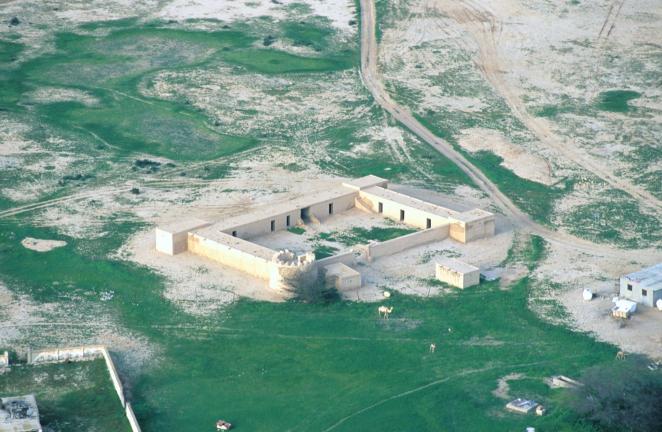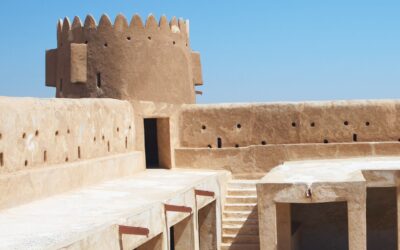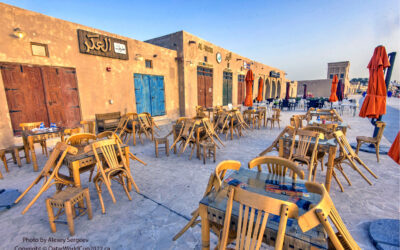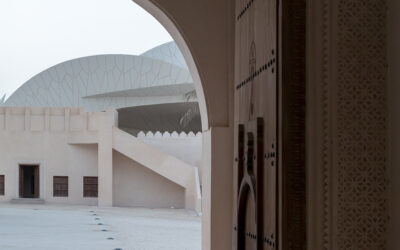A one-hour drive from Doha towards the north-west, one can discover an area of forts, traditional architecture and old villages. The fort of Al Rekayat is one of several desert forts dating back to the 19th century.
Located on the road between Al Zubarah and Madinat Al Shamal, it is one of the few forts that were renovated in the 1980s. The restoration was done carefully so that the fort resembles the original structure. The remains of the original structure can still be seen in the courtyard.
The name Al Rekayat means “well” in Arabic. Therefore it is believed that the fort was built to protect the essential sources of water in this place. The existence of a freshwater well in the fort itself and the scattered remains of a village close to the fort support this assumption. In addition, the fort was a secure place for the nearby population in case of potential conflicts between tribes.
The Al Rekayat fort follows the typical plan of a desert fort: it has three rectangular towers and a round one. Aligned around the three sides of the large central courtyard are narrow rooms without windows, but with doors that open to the courtyard. The only entrance to the fort is located in the southern wall.




